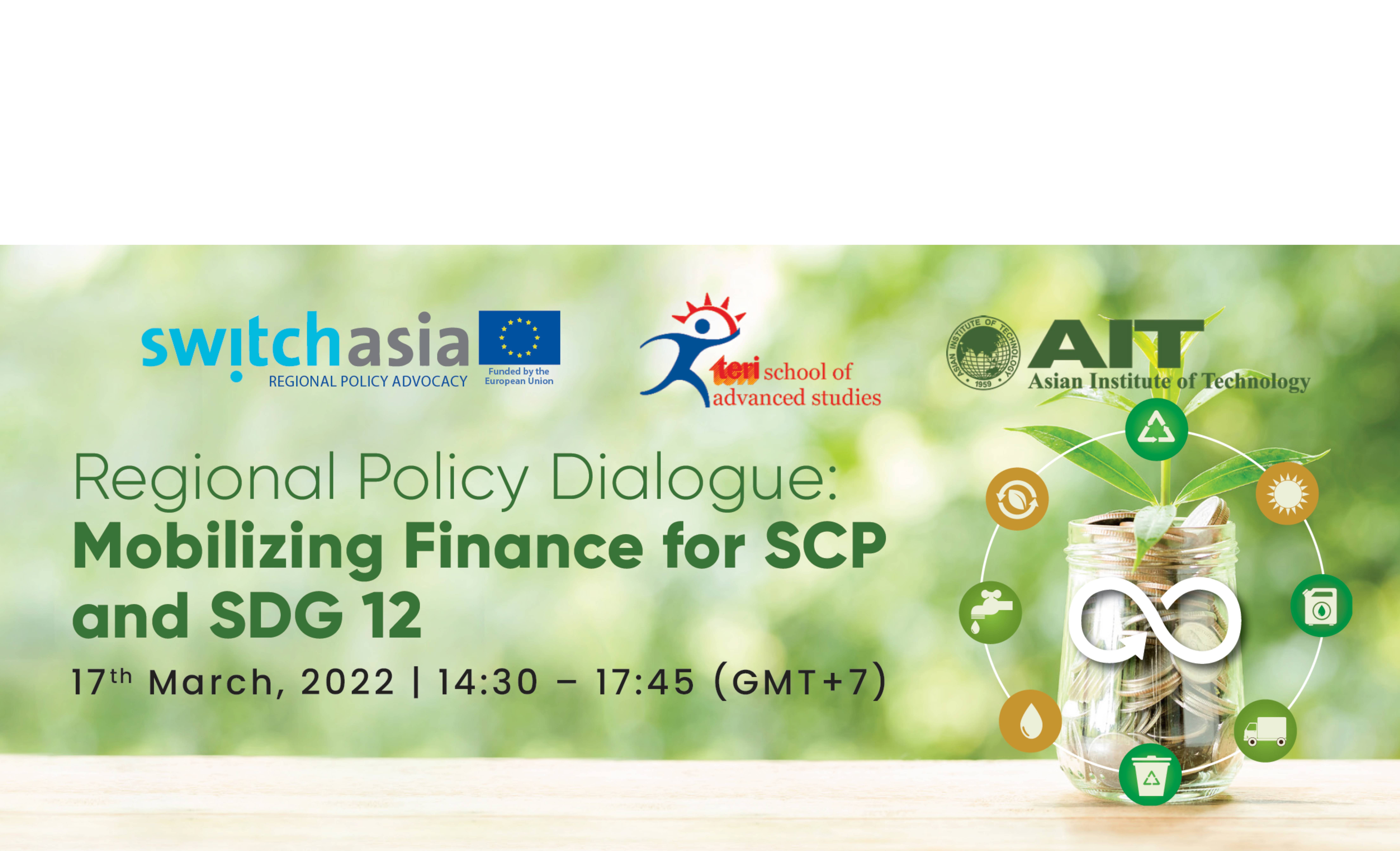
WHEN: 17 March 2022 I TIME: 14: 30 - 17: 45 (GMT+7) I REGISTER Here
Background
The EU-funded SWITCH-Asia programme aims at supporting the development of a green economy and the transition towards a low-carbon, resource-efficient and more circular economy in Asia, promoting economic growth while decoupling it from environmental degradation. The SWITCH-Asia Regional Policy Advocacy Component (RPAC), implemented by United Nations Environment Programme, is designed to strengthen the dialogue at regional, sub-regional and national policies on Sustainable Consumption and Production (SCP) and thereby to contribute to green growth and reduction of poverty in Asia.
SDG-12 focuses on sustainable management and efficient use of natural resources, implementing sustainable agricultural practices, and undertaking energy-efficient practices across sectors. This goal has several implications for major economic sectors such as agriculture, manufacturing, transport, energy, to name a few. As Asian economies continue to grow, there has been a sustained increase in the demand for natural resources.
The need to shift towards sustainable forms of consumption and production is urgently required. This will involve collaborative efforts from various stakeholders to facilitate finance for SCP. There are various forms of financial resources available in Asian economies to drive financing for SDG 12, international finance (both public and private), domestic (both public and private), public borrowing (domestic and international), remittances, and commercial investments. While there have been considerable developments in the green bond market in Asia, there have also been attempts to label these bonds as ‘green’ to finance low carbon and climate-resilient infrastructure. However, the existing regulatory framework does not support earmarking the bonds exclusively for financing SDG 12 efforts.
Hence, financing for SCP needs to be bolstered through enablers or levers, some of which are effective policy and regulatory framework, governance, technological innovations, reporting and monitoring mechanisms, capacity building and outreach, market efficiencies, and innovations in business models. While available literature and knowledge focus on the volume of finances available for accomplishing the SDG Goals, there is less know-how on the landscape of financing with respect to SDG 12, especially for Asian economies.
In this context, RPAC, in partnership with the TERI School of Advanced Studies (SAS) and the Asian Institute of Technology (AIT), is organising a regional policy dialogue based on the concept of mobilizing finance for SDG-12. The dialogue will discuss the imperatives of financing SCP and SDG-12, highlight the key trends, get first-hand insights from financing organisations and academic institutes, emphasising key barriers to garner private investments into the sector, and also focuing on the role of enablers to address the challenges.
Objective
The objective of the regional dialogue is to enrich existing knowledge and identify opportunities to promote sustainable finance on SDG 12 in Asian countries through engaging wider stakeholders into the discussion on:
-
Practical enablers for mobilising finance for SCP and SDG 12 in Asia;
-
Challenges and Solutions to drive private investments for SCP activities;
- Existing best practices that showcase impactful solutions for facilitating finance for SDG 12.
Target Participants
The regional dialogue is open to everyone with an interest in SDG 12 financing and it is expected to bring experts from policy, finance, technology, and business to gather diversified perspectives on the topic.



